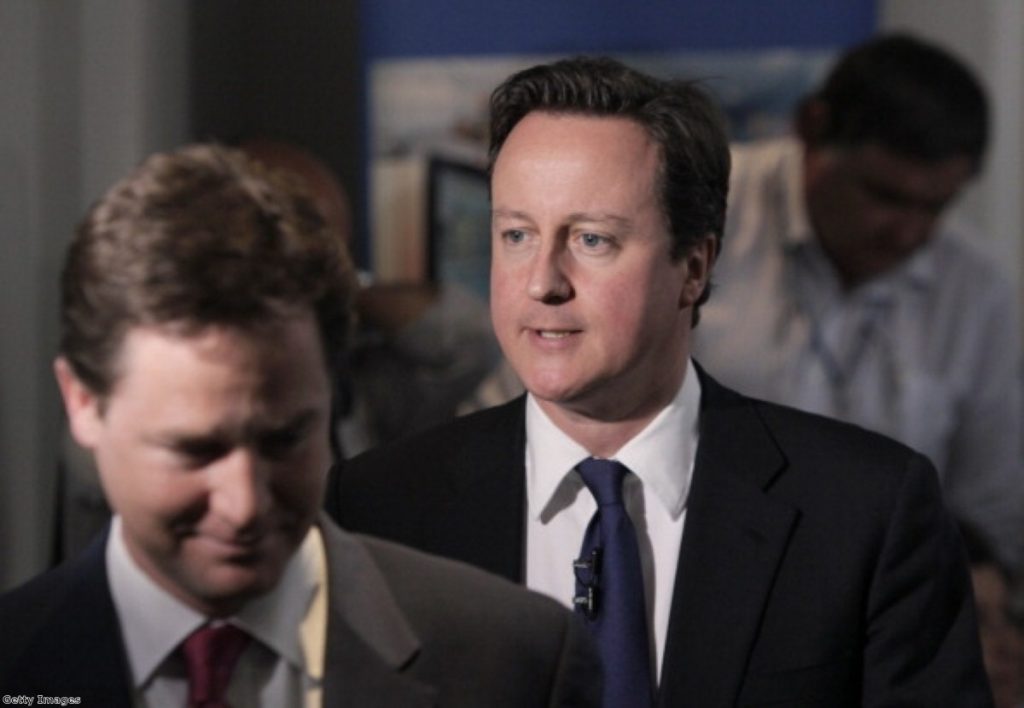Cameron: I’ll change the NHS because I love it
Hospital doctors and nurses will be involved in commissioning alongside GPs, David Cameron has said.
The confirmation of a shift in the government’s NHS reform proposals was the only concession in the prime minister’s latest speech making the case for change.
Mr Cameron used a speech at a hospital in west London to insist that the NHS had to reform because a failure to “modernise now” would lead to “crisis tomorrow”.
But he also said that the new emphasis on competition contained in the health and social care bill represented an “evolution, not revolution”.
“When I think about what our NHS will look like in five years time, I don’t picture some space-age institution, a million miles away from what we have now,” he said.
“Let me make clear: there will be no privatisation, there will be no cherry-picking from private providers, there will be no new upfront costs people have to pay to get care.
“It will be the NHS you love and recognise – only better.”
Interview: BMA’s Hamish Meldrum
The coalition is facing huge opposition to the competition-driven health and social care bill currently stalled in parliament as ministers engage in a ‘listening pause’.
The NHS Future Forum is set to deliver its recommendations at the beginning of next month.
Analysis: Where will the NHS concessions come from?
Opponents across the healthcare sector want ministers to make concessions on a range of issues, with concerns about accountability and medical training high on the list.
But competition remains the biggest sticking point. Although the government has already abandoned plans to introduce price competition it continues to propose handing regulator Monitor a statutory obligation to promote competition exclusively.
There was no indication from today’s speech that Mr Cameron was prepared to make further policy retreats. He said “substantive” changes would be made to the reforms, having said in last week’s prime minister’s questions that reforms would be “substantial”.
“There’s only one option we’ve got – and that is to change and modernise the NHS, to make it more efficient and more effective and above all, more focused on prevention, on health, not just sickness,” the prime minister added.
“We save the NHS by changing it. We risk its long-term future by resisting change now.”
The public are broadly happy with the state of the NHS, however. Satisfaction is at a ten-year high, according to pollsters Ipsos Mori, while seven in ten believe the NHS is one of the best health services in the world.
Analysis: The coalition’s balancing act
Among the prime minister’s arguments for change was that, under the current system, “too much comes down to luck and where people live”.
Campaigners point out increased competition would make disparities in services much greater.
Comments by Mark Britnell, an adviser to No 10 on health issues, risked entrenching the opposition to the reforms even further after some of his comments were highlighted by the Observer newspaper yesterday.
“GPs will have to aggregate purchasing power and there will be a big opportunity for those companies that can facilitate this process,” he was quoted as saying at a New York conference.
“In future, the NHS will be a state insurance provider, not a state deliverer.”
He added: “The NHS will be shown no mercy and the best time to take advantage of this will be in the next couple of years.”
The prime minister’s speech appears to have done little to mollify opponents of the reforms. Christina McAnea, head of health at public sector union Unison, said his examples painted “an untrue picture”.
“Cameron’s call to crack down on waste in the NHS is a smokescreen for a move to a wholesale market, which opens the NHS up to privatisation,” she commented.
“The real waste is the time spent on the fatally flawed reforms, which will force NHS patients to the back of a very long queue.”
The British Medical Association has called on the prime minister to abandon the bill completely.
Chairman of council Hamish Meldrum told politics.co.uk last week: “At the risk of using a very abused phrase, I agree with Nick [Clegg] that no bill is better than a bad bill.
“It’s rather ironic that on one hand the secretary of state says his proposals are there to give doctors more say, more involvement, to listen to them and to let them run the service, and yet when we tell them his plans aren’t working, he doesn’t seem to want to hear what we’re saying. We’ll have to wait and see how effective our campaigning and our arguments are.”





-01.png)